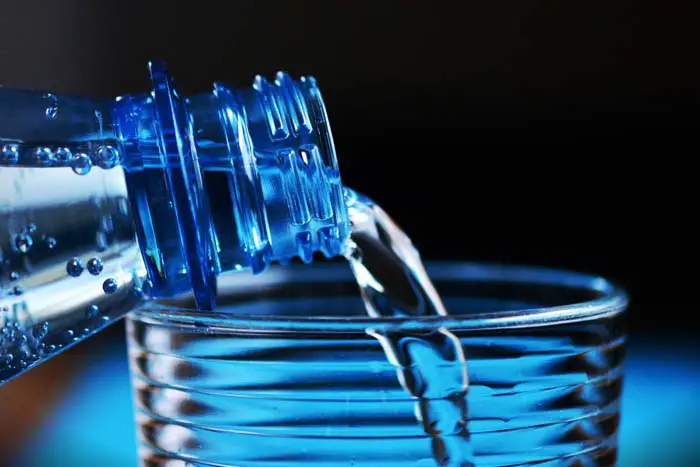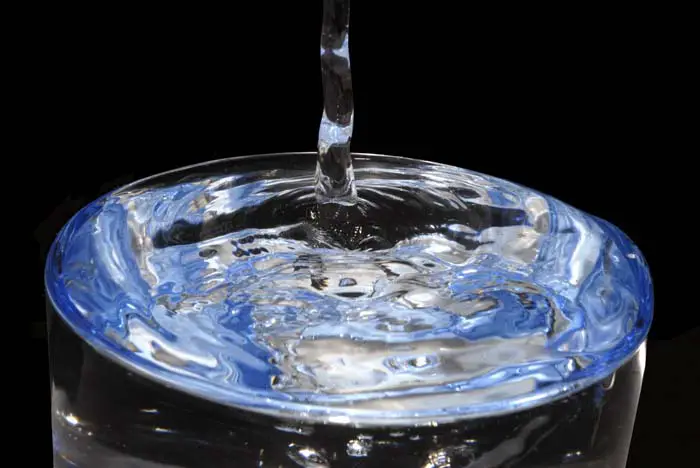The best water for cooking and drinking comes from home water distillers. In addition to a healthy diet, drinking water free of contaminants is essential. Different water filtration options are available to improve your water quality. Distillation is one of these options for water treatment.
In order to improve the flavor and scent of your drinking water, you can use a water distiller. With this, you’ll be able to get your hands on pure, healthy water.
What is a water distiller?
A water distiller removes over 99.9% of pollutants, which include sediments, heavy metals, chemicals, and microbes, from the water. A typical water distiller has a cooling chamber, a boiling chamber, and a separate tank for storing the distilled water.
How does a water distiller work?
Water fills the boiling chamber, and then you turn on the distiller after plugging it in. After that, the boiling chamber will heat to the degree that the water boils.
Steam rises through the cooling system as water evaporates. The condensate drips into a clean container as it travels down a sloping passageway.
The boiling point of many pollutants is below that of water. As a result, when you boil water in the boiling chamber, pollutants cannot evaporate with the water particles.
They remain in the boiling chamber until the distillation procedure is completed; at this point, they are removed when you clean the chamber.
What’s the use of distilled water?
You can use distilled water for a variety of purposes around the house, including general cleaning, steam irons, filling aquariums, and car batteries.
Scientific, medical, and industrial applications all use distilled water heavily.
No impurities in distilled water could interfere with scientific experiments, leave an unpleasant residue, or interact with substances in medicines or other products, so it is safe to use.
As a result, it is a safer and cleaner option than tap water.
What kinds of impurities does a water distiller get rid of?
A water distiller can remove most of the impurities found in drinking water. This machine removes dissolved salts as well as microorganisms like bacteria, organic substances, heavy metals like lead, hardness minerals, chemicals like chlorine, and most other impurities.
It’s rare for distillation to be able to get rid of everything, from microscopic viruses to huge particles of suspended sediment.
VOCs and benzene are two pollutants that can be converted to gas by water. Water falls into a holding container and passes through an activated carbon filter at the spigot, removing any impurities before it can be poured out.
Using a water distiller has both pros and cons

The biggest benefit of owning a water distiller is that you’ll always have access to fresh, pure water. This can be a lifesaver if your regular house water supply is tainted by contaminants or microorganisms that make you sick. You can also use them to purify salty ocean water for consumption. You may be surprised by what you find when selecting the best model.
There are two main drawbacks to using a water distiller: it consumes lots of electricity and is sluggish. To prepare for large-scale water needs, you should have filtered distiller water on hand for days in advance if you’re using a distiller. Additionally, if you plan on using this unit regularly, be ready to see an increase in your electric bill as a result of the process’ high energy consumption. In addition, some people find the taste of distilled water unpleasant, although you can alleviate this by consuming the water immediately after distillation.
Important features
Capacity
A water distiller’s capacity is one of its most essential features. Because the amount of distilled water you use on a daily basis has a direct correlation to the amount of storage space you need, it’s critical to factor this into the capacity you need. A simple approach to figuring this out is to note how much water you use at home on a typical day.
When determining a distiller’s capacity, most people look at how much water it can produce in a single 24-hour period. Still, there are other things to think about if you don’t have regular access to water, like how long the distiller cycles and how much water it can hold.
Type
A wide variety of water distillers, including automatic and manual models, are currently on the market. You should operate a manual water distiller by hand, as the name implies. When the distillation cycle is over, you’ll need to add water and empty the tank to start a new one. However, you do not need to fill out and activate an automatic model. Every time you take the water out, the distiller will automatically distill the necessary amount of water for you. The type of water distiller that is best for you will depend on what you want to accomplish. Water distillers aren’t necessary if you only need a little amount of distilled water on a daily basis. Their capacity is greater, and they use more energy than manual water distillers.
Consumption of energy
Most people will run their water distillers 24 hours a day, seven days a week. It’s crucial to think about how much energy it uses. The reason is that a lower wattage model can save you a lot of money on your monthly electric bill. You could save money by buying bottled water when you only need to use a water distiller a few times, like when you need to fill your fish tank.
Materials
The distiller’s material is also a key issue. As long as they’re branded as food-grade materials, glass or stainless steel parts are typically preferred. This is because they don’t leach pollutants into the water during distillation. Another important benefit is the ease with which glass and stainless steel can be cleaned.
Plastic, despite being less desirable, is more affordable. Plastic distillers created with BPA will leak toxins into the distilled water you were trying to purify, so be careful to opt for BPA-free models. Consideration of materials is also necessary when selecting an output container. However, this is less critical due to the lower temperatures in the water.
Filtration
Distillation eliminates the need for water filtration. However, some dislike distilled water’s taste because it lacks natural minerals. Some models use an incorporated carbon filter to alter the taste of the distilled water, which can be beneficial. When it comes to your water’s flavor, you may or may not care about this function, depending on your own preferences.
Advantages of distilled water
Worthy of your money’s worth
If you are thinking of purchasing a water filter in order to reduce the amount of bottled water you consume.
Purified naturally
Distillation is an environmentally friendly way to purify water since it mimics the hydrological cycle. It is safe and trustworthy because there are no chemicals in the water. There is no danger of disrupting the chemical equilibrium of our bodies.
No Nitrites or Nitrates
Groundwater and tap water may include nitrites and nitrates. Soil enrichment with nitrogen fertilizer may result in nitrate traces in the groundwater. Groundwater can be contaminated by nitrate from animal and human waste. Because of their low immunity, kids and seniors particularly face particular danger from nitrites and nitrates. It is possible to die as a result of ingesting huge doses of it.
No need to install anything
Distillers are a big benefit because they don’t need any set up. All you have to do is plug the system in and turn it on.
Chlorine-free
Most public water systems use chlorine as a disinfectant to get rid of viruses and bacteria that might be present in the water. On the other hand, too much chlorine has the potential to be harmful to human health. Thus, it would be best if you avoided it wherever feasible.
No microbes
Although some microorganisms are harmless, microbes can cause infections and sickness in humans. There are no microbes in distilled water.
Health benefits
Health benefits can be gained from using distillers. It can increase your mental abilities, help you lose weight, improve the appearance of your skin, protect your joints, and alleviate headaches.
No Barium
Groundwater can become contaminated with barium from industrial waste, and this barium could end up in our drinking water. Barium has been linked to high blood pressure in lab animals, suggesting it may harm the heart.
Conclusion
A water distiller can be an excellent option if you’re looking to purify your tap water for drinking or other home needs. It may take some time to get used to the process of manually operating a distiller, but in the long run, the benefits are well worth it for many people. You should have an easier time finding a model that meets your needs on the market and knows what to look for in a water distiller.


